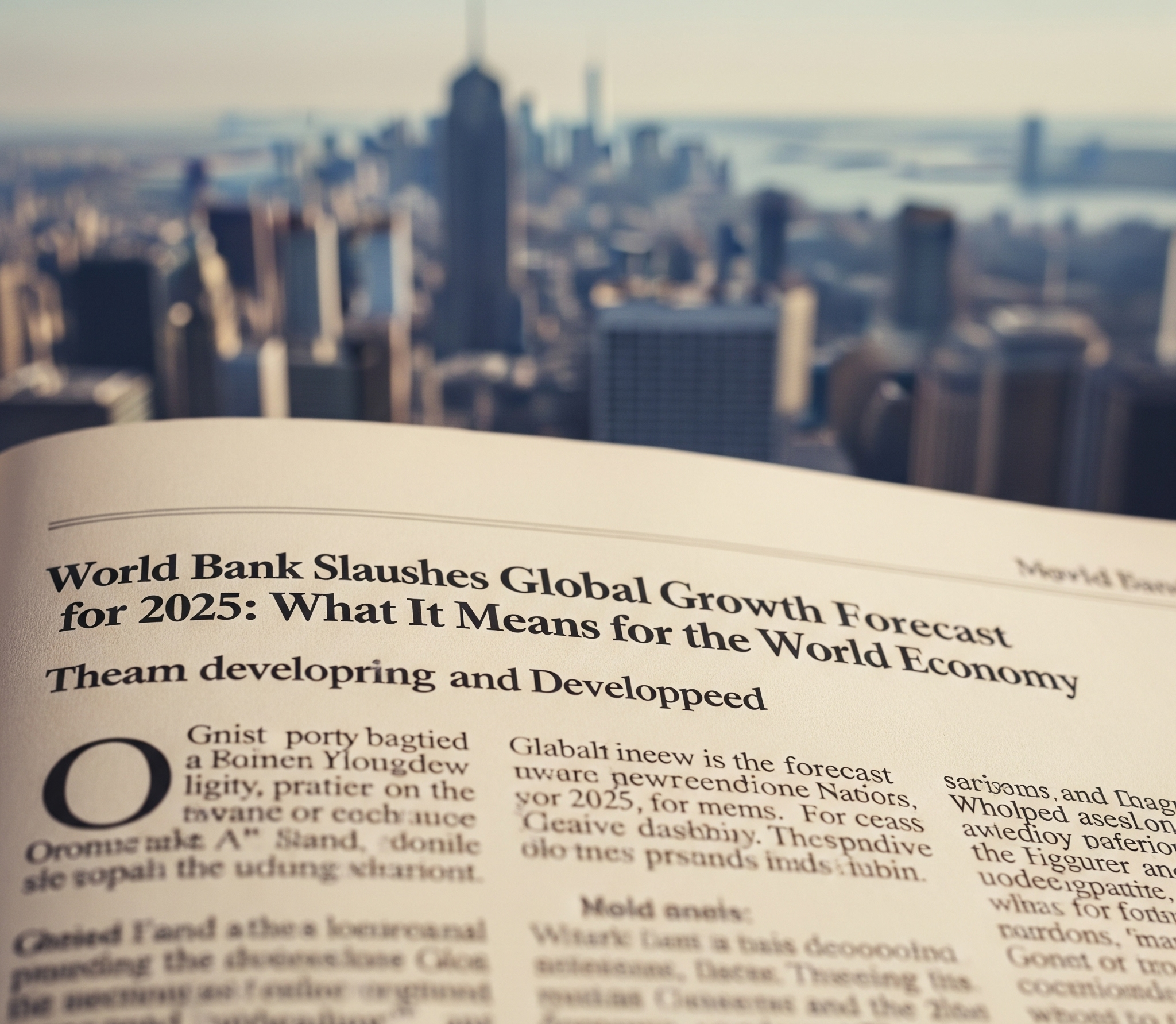The World Bank has recently reduced its global growth forecast for 2025 warning that the world economy may face more trouble in the coming year. The new forecast expects the global economy to grow by just 2.3% down from the earlier prediction of 2.7%. This drop has sparked concern among economists, investors and governments alike.

Why Was the Forecast Lowered?
The World Bank has pointed out a few key reasons behind this reduced growth projection:
- Rising U.S. Tariffs
The U.S. has started to increase tariffs on certain imported goods. Tariffs are taxes placed on goods coming from other countries and they can make products more expensive. These higher costs can slow down trade between countries, reduce business profits and eventually impact jobs and investments. - High Global Uncertainty
There is a lot of uncertainty in the world today. Geopolitical tensions, ongoing conflicts and changes in government policies are making investors and businesses nervous. When companies are unsure about the future they tend to hold back on investing and hiring. This leads to slower economic growth. - Trade Disruptions
Because of rising tariffs and political tensions global trade is being disrupted. This means that the flow of goods and services between countries is not as smooth as it used to be. In 2024 global trade grew by 3.4%. But in 2025 it is expected to slow down significantly to just 1.8% nearly half the previous year’s rate.
Other Global Forecasts Also Lowered
The World Bank is not the only institution that’s lowering its expectations. Two other major global financial organizations have also reduced their forecasts for 2025:
- OECD (Organisation for Economic Co-operation and Development) now expects global growth to be 2.9%
- IMF (International Monetary Fund) predicts growth of 2.8%
These numbers are still slightly higher than the World Bank’s estimate but clearly show a trend: experts around the world agree that 2025 will be a slower year for the global economy.
What Does Slower Growth Mean?
Let’s understand what these numbers mean for everyday people and businesses around the world.
1. Fewer Job Opportunities
When the economy grows slowly companies may avoid hiring new employees or might even reduce their workforce. This can lead to higher unemployment in some countries.
2. Lower Incomes
With companies earning less money salary hikes and bonuses could become rare. People may find it harder to manage their daily expenses if their income does not grow.
3. Reduced Business Investments
Businesses often delay or cancel investment plans during uncertain times. That could mean fewer new factories, offices or stores being opened.
4. Impact on Developing Countries
Developing nations rely heavily on global trade and investment. Slower growth globally can hit these economies harder especially those depending on exports.
5. Higher Prices in Some Cases
Trade disruptions and tariffs can also lead to higher prices for goods especially imported items. This can lead to inflation in some regions making everyday items more expensive.
How Are Countries Responding?
Countries are aware of the risks and are taking steps to reduce the impact:
United States
The U.S. is focusing on strengthening domestic manufacturing and job creation. While higher tariffs may protect local industries they can hurt global trade relationships.
European Union
European countries are focusing on maintaining economic stability through stimulus programs and support for small and medium businesses.
China
China is pushing for more domestic consumption and shifting away from reliance on exports. It is also trying to stabilize its real estate market and manage high local government debt.
India
India is continuing its infrastructure push and encouraging private investment. Government spending is being used as a tool to keep the economy moving forward.
What Can Be Done to Improve the Situation?
The world economy can recover and grow stronger if the right steps are taken. Some suggestions from economists include:
- Reducing Trade Barriers
If countries reduce tariffs and make it easier to do international business global trade can pick up again. - Increasing Cooperation Between Countries
Instead of acting alone countries can work together to solve common problems like inflation, debt and supply chain issues. - Supporting Innovation and Green Growth
Investing in new technologies, clean energy and digital services can create jobs and new business opportunities. - Monetary and Fiscal Support
Central banks and governments can continue to support their economies with smart monetary policies (like low interest rates) and targeted spending.
Final Thoughts
The World Bank’s downgraded growth forecast is a wake-up call for the global economy. While 2025 may bring challenges like trade disruptions, cautious investors and rising tariffs the situation is not without hope. With careful planning, cooperation and strong leadership the world can avoid a deeper slowdown.
People, businesses and governments must stay informed and prepared. While the numbers may seem small just a 0.4% drop in the forecast the impact on jobs, income and trade can be big. Now is the time for nations to come together and take action to secure a more stable and prosperous future.
